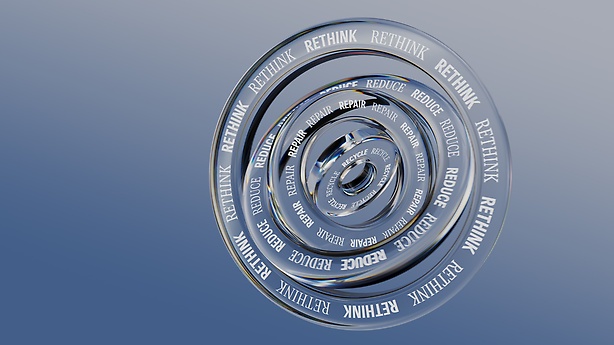Mercedes-Benz works with various partners to take a circular approach to old tyres. One route takes advantage of BASF’s chemical recycling process. The starting point is pyrolysis oil generated from used tyres by the pyrolysis company Pyrum Innovations AG . BASF combines this with biomethane from agricultural waste. Using both of these materials together, it is possible to create a virgin-quality plastic that is certified in accordance with the so-called mass balance approach . An independent certification confirms that the supplier replaced the quantity of fossil resources necessary for the final product with renewable resources and pyrolysis oil from tyre recycling. The cooperation between Mercedes-Benz and BASF marks the first use of pyrolysis oil from recycled end-of-life tyres combined with biomethane.
The recovery of secondary materials reduces not only the use of fossil resources but also the carbon footprint of the resulting new plastics. Furthermore, for the first time, the innovative recycled plastic has the same characteristics as virgin plastic produced from crude oil. This means that it can be applied quickly to ongoing production as a drop-in solution. At the same time, it fulfils Mercedes-Benz’s high quality standards and demands, particularly when it comes to paintability and crash safety. These properties indicate that the waste tyre recycling process has the potential to replace a large number of vehicle components made from primary plastic.
Since 2022, the EQE and S-Class are the first series-production models which are available with bow door handles manufactured using a combination of biomethane and pyrolysis oil made from old tyres, instead of raw fossil resources. The S-Class has also been fitted with a crash absorber based on this combination of raw materials. As part of the front end, the part creates a more even distribution of the forces acting on the other car in a frontal crash. Forthcoming models such as the EQE SUV and EQS SUV will be equipped with bow door handles made from this innovative plastic as well. Looking to the future, the aim is to progressively increase the use of this more sustainable recycled material, and also to use chemical recycling in combination with the biomass balance approach for further plastic vehicle parts. The company is currently exploring suitable applications.
,xPosition=0,yPosition=0.5)

,xPosition=0.5,yPosition=0)
,xPosition=0.8,yPosition=0)
,xPosition=1.0,yPosition=0)